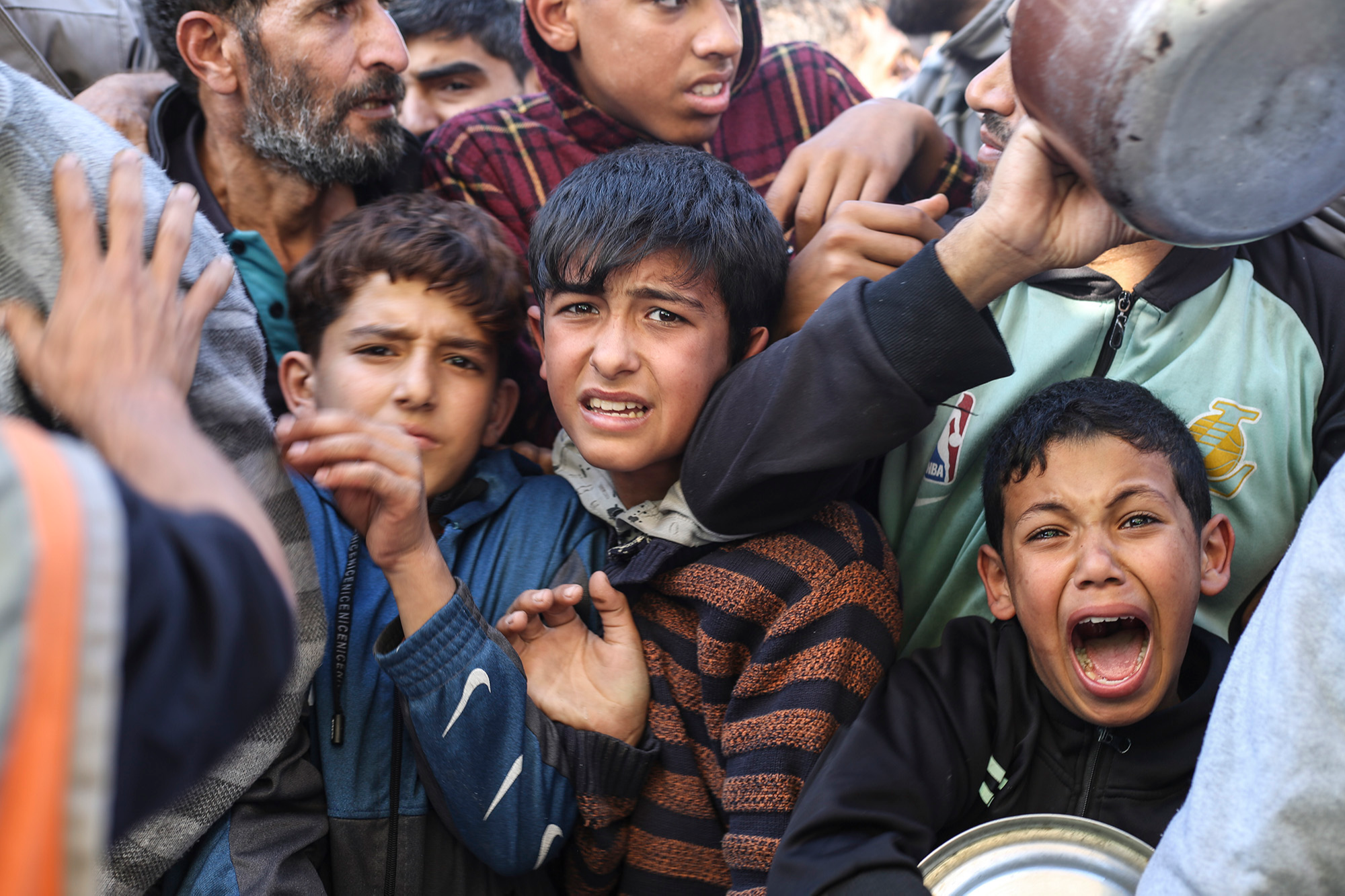
Geneva, January 1 (RHC)-- The UN agency for Palestinian refugees has warned that 40 percent of Gaza’s 2.3 million population are facing a “risk of famine,” as Israel ramps up attacks in the besieged territory.
Thomas White, UNRWA’s director in Gaza, on Saturday urged “sustainable” aid flow to the Gaza Strip. “People are hungry and just desperate for food. 40% of the population at risk of famine,” he wrote in a post on X, formerly Twitter. “More regular supplies needed - require safe and sustainable humanitarian access everywhere including to the North of Gaza,” White added.
White also said that a UN aid convoy, returning from mission to northern Gaza on a route designated for humanitarian aid, came under Israeli fire over the weekend. “Our international convoy leader and his team were not injured but one vehicle sustained damage,” White wrote on X. “Aid workers should never be a target.”
Since Israel launched the war on Gaza on October 7, the relentless air and ground blitz on the besieged Strip has killed at least 21,672 Palestinians, mostly women, and children, and injured over 56,000 others.
Israeli regime strikes have left most of the Gaza Strip in ruins, with 60 percent of the Palestinian territory’s infrastructure damaged or destroyed, and nearly 2 million residents displaced amid acute shortages of food, clean water, and medicine due to a blockade imposed by the regime.
In a new food security report published earlier this month, the UN World Food Programme (WFP) warned that while the Israeli war shows no signs of abating, more than one in four households in Gaza, or more than half a million people, are grappling with extreme hunger.
“The intensification of the hostilities, further reduction in access to food, basic services, and lifesaving assistance, and the extreme concentration or isolation of people in inadequate shelters or areas without basic services are major factors that contribute to increasing this risk,” the report said.

